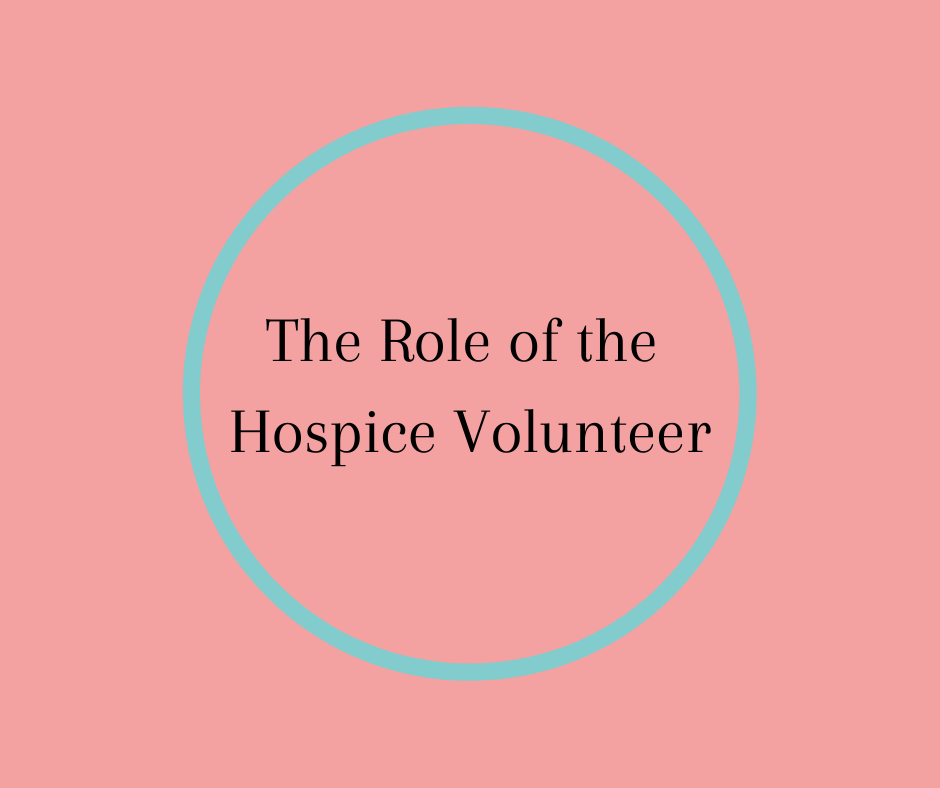Dear Barbara, what is the role of the patient care volunteer?
Different agencies use volunteers in different ways while being mandated to use volunteers by the Medicare Hospice Benefit. Not all hospices use them in the same manner. Some of what I am sharing here is from how I used volunteers during my agency Director days. This is not necessarily how all hospices use their volunteers.
A patient/family support person. A trained volunteer is assigned to a specific hospice family to be a friend: a presence in their life during a time of great emotional upheaval. This friend can sit with the patient and interact (if the referral is early enough before the patient has withdrawn inward) or just be a presence. Being there often allows the family an opportunity to leave the house, take a nap or just attend to other activities in the house without having to be concerned about the direct needs of the patient. The volunteer is then trained in providing basic care needs as they may have to offer a bedpan, turn a patient, assist in getting up, change a sheet, offer food or assist with feeding while the primary caregiver is not present.
The volunteer can be a friend to the family member caregiver, a person outside of friends and family, that they can talk with. Often times it is easier and safer to talk with a trained “stranger” then someone you know and have a history and future with.
Some Hospices now have Eleventh Hour programs where volunteers are trained to sit with patients in the last hours of life: a part of the No One Dies Alone concept.
Bereavement support is also a great place for volunteers. Ideally the volunteer that worked with the family prior to their loved one’s death continues support and has a relationship with them following the death. That includes encouraging the family to attend--and even going with them to--bereavement support groups.
Volunteers can help with children’s grief camps.
Volunteers are great listeners, make a mean sandwich, can tidy an area and do dishes quick as a wink; can read a soft story or sit quietly enjoying a good piece of music. Volunteers know how and when to touch, to laugh, to cry, to listen and when to speak.
I have addressed patient care volunteer’s roles but not all hospice volunteers want direct patient and family contact. Office help, fund raising, marketing, and deliveries are other areas of help.
Volunteers are one of hospice’s greatest and often underutilized assets.
Something more... about The Role of the Hospice Volunteer...
To train your hospice volunteers, I encourage you to have them study GONE FROM MY SIGHT: The Dying Experience, THE ELEVENTH HOUR and watch NEW RULES For End of Life Care (the same education you give your families). The volunteers must educated as well as other staff so that families receive consistent information. This will also help with CAHPS scores.





